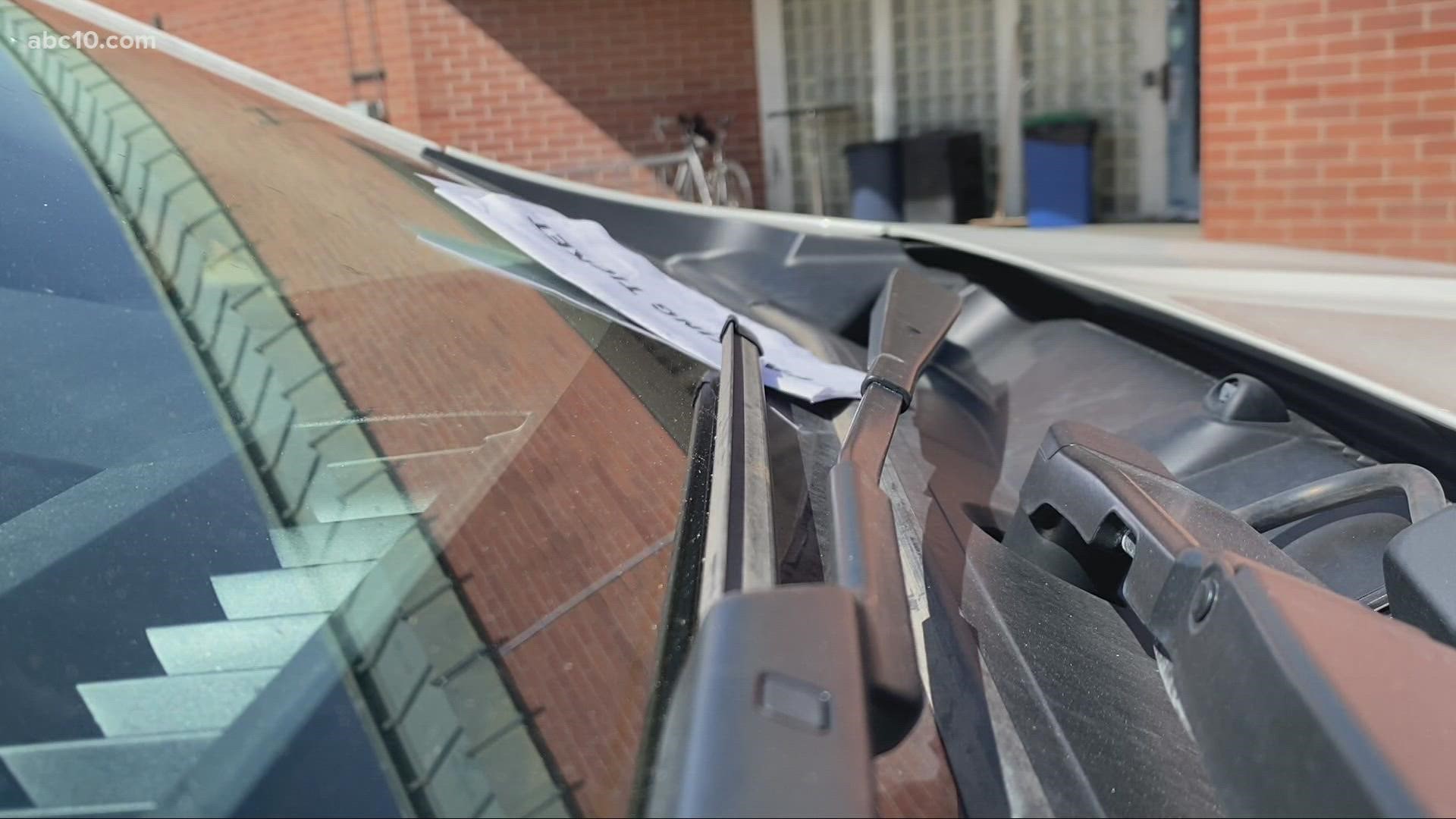SACRAMENTO, Calif. — Californians pay nearly 20 fees and surcharges on all their traffic violations.
"Parking tickets and traffic tickets are higher in California than almost anywhere else,” Elisa Della Piana said.
Della Piana is the legal director of the Lawyers Committee of Civil Rights for the Bay Area.
“They're so expensive," she said. "They're out of reach for many Californians.”
She said there are 18 fees added on to all traffic violations, like not fully stopping at a stop sign.
Those fees turn that $35 ticket into $238.
If you miss the payment deadline, there's a $300 late fee, also known as a Civil Assessment Fee, added on top of that.
“It's a backdoor way to make money out of people's pockets,” she said.
One of the fees is a 20% surcharge. Democratic Assemblymember Adam Gray said It was created in 2002 at a time when the state faced a deficit. That surcharge was supposed to end in 2007, but it didn’t.
“The legislature essentially decided to balance the budget on the backs of people who are disproportionately likely to get parking and traffic tickets: Black and Brown Californians,” Della Piana said.
The surcharge still remains in place even though the state is facing what could be a $60 billion dollar surplus.
"These penalties and fees also create a financial burden on drivers, particularly low-income individuals who may be unable to pay them," former State Auditor Elaine Howle wrote in a letter to the Governor in 2018. "In fact, the cost of certain traffic offenses increases six-fold after the penalties and fees are included. Further, many of the penalties are paying for programs that are not directly related to the traffic offenses for which they are incurred."
On all parking tickets throughout the state, you'll also see a $12.50 'State Surcharge' on top of the cost of the ticket.
“We should be able to hold people accountable without putting them in financial distress,” Anne Stuhldreher said.
Stuhldreher is the director of the Financial Justice Project.
“We were set up to assess and reform fines, fees, tickets, financial penalties, that unfortunately can hit people with low incomes really hard,” Stuhldreher said.
Both Stuhldreher and Della Piana said it’s time for reform.
“There is acknowledgment of that from everyone, from the chief justice of the State of California to many California legislators and the governor's office," Della Piana said. "The challenge is getting the changes made.”
She said Gov. Gavin Newsom’s 2022-23 budget proposes cutting the maximum late fee in half to $150 and allocating $50 million to backfill the loss in revenue for the courts. That budget review process is in May.
Gray tried passing a bill in 2019 and 2020 that would get rid of the state surcharge, but they failed.
In a statement to the Modesto Bee he said: "A state that can set aside $21 billion for a rainy-day fund doesn’t need the minuscule amount added through this surcharge."
Gray’s office told Political Reporter Morgan Rynor that he’s not giving up on the fight, and he’ll try other avenues to eliminate the 'ticket tax,' like the state budget process for example.
What happens if you just can’t afford to pay for the tickets? For traffic violations, there’s a $300 late fee. For parking tickets, it will double in cost if I don’t pay it within 21 days.
WATCH ALSO:
ABC10: Watch, Download, Read

















